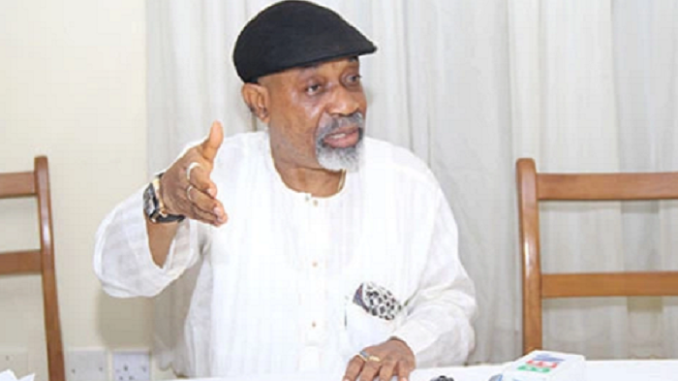
Minister of Labour and Employment Dr. Chris Ngige yesterday said no administration in the history of Nigeria had surpassed that of President Muhammadu Buhari in job creation.
According to him, more than seven million jobs were created in the agriculture sector in the last two and half years.
Dr. Ngige spoke with State House reporters after meeting with President Buhari at the Presidential Villa in Abuja.
He insisted that the creation of ‘blue collar’ jobs received a boost because of the economic diversification policy of the government.
He said: “We promised jobs when we came on board, but what has happened is that people tried to quantify jobs in terms of ‘white collar’ jobs for graduates from universities, polytechnic but they don’t want to look at the ‘blue collar’ jobs.
“Agriculture and its chains alone have created more than five to seven million jobs. I am talking in terms of rice from rice tilling, harvesting, sending to the paddies, mills, and even where people are making the jut bags, transportations, people are getting jobs.
“So, that value chain alone from agriculture is enormous. Take the N-power, we have created millions of jobs from here, skill acquisition from the National Directorate of Employment(NDE) and other agencies of government, jobs are being created. We give them tools as plumbers, electricians, cosmetologists, shoe makers, tilers and several other areas. We have created several jobs,” he said.
He also noted that the federal government was in the process of accelerating the implementation of a new minimum wage Act, since the previous one expired in 2016.
According to him, stakeholders who were supposed to make inputs in terms of membership, were stalling the process.
He noted that once the tripartite committee and its membership were properly constituted, all the stakeholders would come together to see the possibility of implementing the N56,000 minimum wage which workers were pushing for.
He said: “We didn’t say we were going to accelerate the process. When we came to power in 2015, there was a minimum Wage Act and by May 2016, we now had a deregulation in the petroleum industry and prices of petroleum products went up and we started discussions with the organised Labour.
“One of the agreements was that the issue will be addressed. The old law expired last year August and we are now in the process of constituting another panel for a new national minimum wage committee.
“I have cleared the appointments with the President today and as soon as the Labour people come back from the Labour Governing Board meeting in Geneva, we will take a consensus date with the governors because it is a tripartite committee involving federal and states, the private sector, NECA, MAN, NACCIMA, SMEs, these are the arms that will be involved.
NLC, TUC their affiliates have done their nominations. What we are now trying to fine tune is the date for inauguration”. He added
On whether the N56,000 minimum wage proposed by labour would be feasible in view of economic constraints, he said it would be subjected to debate when the tripartite committee convenes.
“I can’t say whether it will be possible. The tripartite discussion will decide that. This is what we call the social dialogue group which will produce the CBA, collective bargaining agreement on what should be the national minimum wage.”